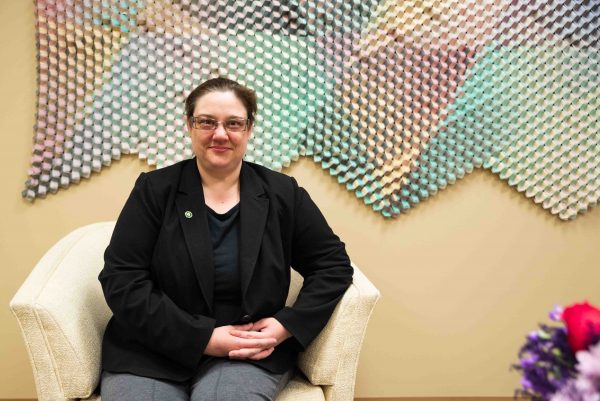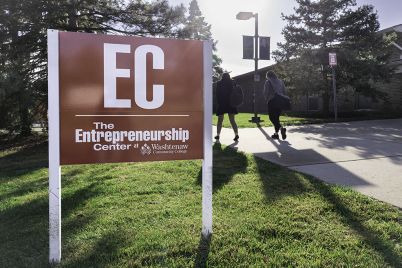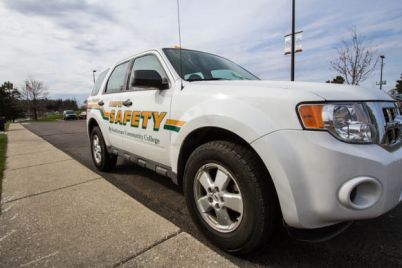
Christina M. H. Fleming, board of trustees chairwoman. Lily Merritt | Washtenaw Voice
By Nicholas Ketchum
Deputy Editor
At its last public meeting on March 26, the board of trustees approved a design contract for a proposed Advanced Transportation Center building, which will, according to meeting documents, “serve as an incubator of creative thought on transportation and mobility.”
The firm handling architecture and engineering work will be Southfield-based Neumann-Smith Architects, according to the documents.
Six firms originally received proposal requests from the college in December; all six responded. Eventually, two firms were finally considered before deciding on a winner.
The contract stipulates expenditures with the contractor shall not exceed $460,000. A final design is expected by September 2019.
The state, having already approved a preliminary design, will provide $2 million in funding, which is 50% of the original outlay submission provided by the college to the state. WCC will fund the remaining costs.
Currently, the total project cost is projected at $5.7 million.
Christina M. H. Fleming, board of trustees chair, said the board will ultimately approve the overall design recommendations drafted by Neumann-Smith.
Fleming said the building is estimated to contain roughly 12,000 square feet. It will sit near the Occupational Education building and the bus loop leading to the Student Center.
“It’s going to be a mixed-use facility,” Fleming said. “One of the first concept drawings I saw had the building as a two-story building, with an auto bay in the back to bring vehicles in for testing at the lab.” Programs in areas such as mechatronics, cybersecurity, powertrain development, mobility, fiber optics and data analytics will be housed in the new facility—in whole, or in part.
“It will be like any other subject here on campus, it will be spread around a little bit. Not everything can be in one single place—I imagine a lot of stuff might stay in [occupational education] where the welding machines and other permanent machines are,” Fleming said. The building will also be used for local functions as well, and not just college coursework.
“This will also be a community-use space, too,” she said. “For example, we have a lot of businesses that come in say, ‘We want to conduct a training class for our employees—for example, maybe AT&T would come for fiber optic training—do you have a space we can use?’ So, this would be an example of that space.” The current timetable estimates construction will start in April 2020 with completion in time for the 2021 winter semester.


